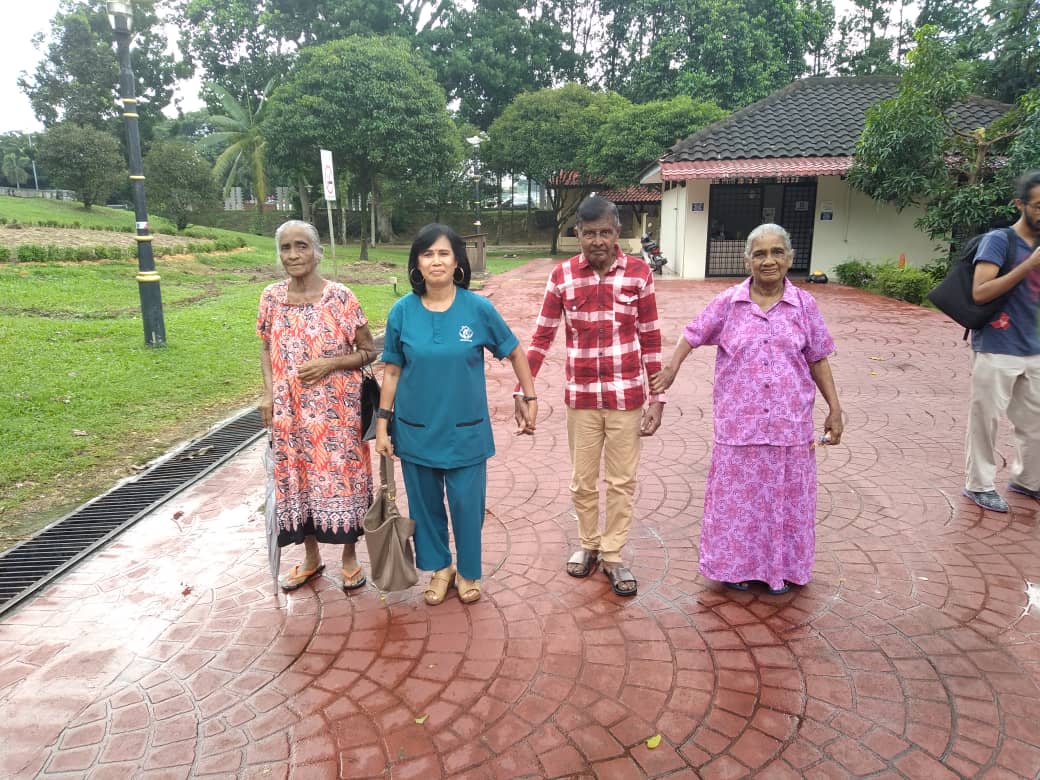KUCHING, Oct 27 – Malaysia is ill-prepared for its forthcoming status as an aged nation by 2035, when 15 per cent of the population will be senior citizens, warns Dr Veronica Lugah, a public medicine specialist at the Sarawak State Health Department.
Dr Lugah, who is part of the team that developed the Health White Paper (HWP), a document outlining Malaysia’s health care reforms for the next 15 years, said that the country is not equipped to provide adequate long-term care to its senior citizens.
This demographic group incurs medical costs two to three times higher than the general population.
“Basically, Malaysia, we are not ready for an aged nation. We’re not ready in terms of long-term care, in terms of, (the number of) geriatricians.
“We have very few (geriatricians) here now in Malaysia. And of course, we also face the double burden of disease, the rising NCDs. We are not winning this battle right now, so we really need the cooperation of everyone. How can we address the problem of non-communicable diseases? Hypertension, diabetes, mental health.
“We should not rely on only giving people medications. It should be more on preventing diseases. We also face the challenge of communicable diseases, and in terms of crisis, disaster preparedness and also planetary health,” said Dr Lugah at the Sarawak Health Summit 2023 held at the Waterfront Hotel on September 9.
In March 2016, the then Women, Family and Community Development Minister Rohani Abdul Karim disclosed that Malaysia’s senior citizen population (aged 60 and above) would reach 5.6 million by 2035, meeting the 15 per cent threshold for an aged nation.
An ageing society is defined as having a minimum seven per cent of its population aged 65 and older, while an aged nation has 14 per cent or more in that age group. Malaysia was officially considered an ageing nation last year.
For Sarawak, in particular, Chris Cheng, the president of the Society for Cancer Advocacy and Awareness, Kuching (SCAN), stated during the summit that Sarawak will be the first Malaysian state to hit the aged nation status, with the state reaching this status by 2028, two years ahead of other states.
“This demographic shift can also bring a lot of different challenges. Probably an increase in NCDs, you know, a growing demand for specialised geriatric care, and this will be an extreme burden on our health care system,” Cheng said.
Doctor Relocation Exercise Part Of Health White Paper Implementation
Dr Lugah explained that the recent relocation of 1,070 doctors to Sabah and Sarawak is part of the HWP’s implementation. The Ministry of Health (MOH) aims to rectify the uneven distribution of doctors by these relocations.
“There is maldistribution of health resources in terms of public, private, and also urban, rural, even Sarawak as compared to the resources that they have in the peninsula or West Malaysia.
“For example, I mentioned that at the national level, the doctor population ratio is one to 420 (in 2021). For Sarawak, in 2021, it is one in 662, so it is almost 700. For Sabah, one in 776.
“So, even though at the national level it looks good, we are reaching there, going towards one in 400 doctor population ratio, but in Sarawak, we do have this problem of shortage in human resources.”
Dr Lugah also attributes the placement of transferred doctors from hospitals to primary care facilities as part of the follow through with the HWP.
“Another thing is that when hospitals say, ‘Oh, our service is going to collapse, all the doctors seem to be going to the primary health care.’
“Why? It’s also because of that. So these are the things that even though the HWP has only been passed, quite recently in June, in August itself, we see it happening. But people might not realise because, as I mentioned, when we talk about maldistribution, not having doctors in rural areas.
“As outsiders, we say we should have doctors, we should have specialists in all these areas and all that, but when it happens to you, yourself or your children, you’ll be like, ‘No! Not Sabah and Sarawak, not Bario, not Mulu.’ These are the things we talk about. It always seems to be somebody else’s problem, you know?
“There should be a change in mindset. So, the MOH is trying its best to address demand distribution.”
The World Health Organization (WHO) has set a target of 1:225 for the doctor-to-population ratio as part of universal health coverage.
The HWP’s fourth pillar, “Strengthening the Health System’s Foundation and Governance,” acknowledges the need to address staff shortages, maldistribution of health workers, skill gaps between regions, and quality concerns, while adapting to the challenges presented by an ageing population, changing disease patterns, and advances in medicine and technology.
The HWP emphasises the role of Primary Health Care (PHC) as the cornerstone of a new service model, aiming for more comprehensive and community-centric health care.
Despite highlighting these issues and proposing general reforms, the 59-page HWP document lacks detailed plans on how the MOH and the government will implement these reforms.
Dr Lugah clarified that the document presents a “macro policy” of the reforms, with the next phase involving the development of an implementation plan, still in the process of committee selection.
In July, the MOH relocated a net total of 1,070 doctors, with Sabah and Sarawak gaining 551 and 519 medical officers, respectively. Unfortunately, this led to a net loss of 360 doctors in the Klang Valley, exacerbating staffing shortages in the industrial region’s public health care sector.
Dr Kelvin Yii, Health Minister’s Special Advisor, who also addressed the summit, revealed that 30 per cent of transferred doctors appealed their reassignment, and 20 per cent (332 medical officers) of those appeals received MOH approval.








